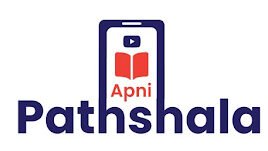| GS 3: Indian Economy |
Why is it in the news?
The Reserve Bank of India (RBI) has prohibited four prominent non-banking financial companies (NBFCs) from approving and disbursing loans due to violations of multiple regulations. The four NBFCs are Asirvad Micro Finance Ltd (backed by Manappuram Finance), Arohan Financial Services Ltd, DMI Finance (supported by Mitsubishi), and Navi Finserv (founded by Flipkart co-founder Sachin Bansal). This decisive action stems from concerns over their lending practices, particularly charging excessively high interest rates, highlighting broader issues with the practices of numerous NBFCs and digital lending apps. Both legal and illegal entities have been accused of predatory loan pricing and harsh recovery methods.
What’s in today’s article?
- Digital Lending
- Need to Regulate Digital Lending
- Steps Taken to Regulate Digital Lending
- RBI Bars Four NBFCs
Digital Lending:
Digital lending is the process of providing credit online, involving web platforms or mobile applications for acquiring customers, credit assessments, loan approvals, disbursements, recoveries, and customer service.
Why Popular?:
The rise in digital lending can be attributed to factors like increasing smartphone penetration, flexible credit options, and the convenience of quick online transactions.
Types of Products: One popular product is Buy Now, Pay Later (BNPL), which allows consumers to purchase items or services without immediate payment. BNPL is essentially a short-term loan product.
Need to Regulate Digital Lending:
- Illegal Lending Apps in India:
According to a 2022 RBI report, India has the highest number of digital loan apps globally, with 600 identified as illegal.
- Targeting Vulnerable Groups:
Many of these apps lend small amounts (₹2,000 to ₹10,000) targeting low-income, financially unsavvy individuals. These loans often come with extortionate terms, including high interest rates, trapping borrowers in cycles of debt.
- Harassment by Recovery Agents:
Borrowers often face harassment as lenders demand access to contact lists and use abusive tactics, including threatening calls, messages, and even morphing images to pressure borrowers into repaying. In some extreme cases, victims have experienced sexual harassment and tragic outcomes, including suicides—six reported cases in Hyderabad in 2021 alone.
- Privacy Violations:
Borrowers give digital lenders access to sensitive information, such as PAN and Aadhaar details, when they apply for loans. These lenders misuse this access, sometimes perpetrating financial crimes using customer data.
- Money Laundering Links:
Investigations have revealed that more than 100 apps related to loans, betting, and dating repatriated thousands of crores to China, often serving as conduits for money laundering.
Steps Taken to Regulate Digital Lending:
- Strengthened RBI Role:
The RBI has been designated as the primary agency for handling complaints against unauthorized digital lending platforms and apps. In August 2022, it introduced the first set of guidelines to address the illegal activities of digital lenders. These guidelines aim to protect consumers from unethical practices, such as mis-selling, data breaches, and unfair interest rates.
- Multi-Agency Crackdown:
In September 2023, the Union Finance Minister launched a multi-agency crackdown on illegal loan apps. The RBI was tasked with creating a ‘whitelist’ of legal loan apps, while the Ministry of Electronics and Information Technology (MEITY) was assigned to ensure only these legal apps are available on app stores.
- Payment Aggregator Registration:
The RBI has also been entrusted with overseeing the registration of payment aggregators, third-party entities that manage online transactions. Additionally, the RBI is monitoring the use of ‘mule’ accounts, which are sometimes rented or used for money laundering.
- Public Repository for Digital Lending Apps:
To enhance transparency, the RBI has announced the creation of a public repository of regulated digital lending apps (DLAs). This repository, accessible on the RBI’s website, will help borrowers verify if a lending app is associated with a legitimate, regulated entity.
RBI Bars Four NBFCs:
The News:
The RBI has barred four NBFCs from approving or disbursing loans. The decision was prompted by violations related to their pricing policies, specifically the charging of excessive interest rates that breached RBI regulations. Although there is no upper limit on interest rates set by the RBI, the regulator mandates transparency in pricing, which these NBFCs failed to follow.
Ignored Regulatory Warnings: Despite repeated warnings from the RBI to adopt fair and transparent pricing practices, especially for small loans, these NBFCs continued to engage in predatory practices. RBI inspections revealed violations, including non-compliance with Income Recognition and Asset Classification (IR&AC) norms, faulty income assessments for microfinance loans, and lack of transparency in interest rate disclosures and fee structures.
In summary, the RBI’s action against these four NBFCs is part of a broader effort to regulate the digital lending space, which has become increasingly problematic due to unethical lending practices, privacy breaches, and links to money laundering. The steps taken by the RBI, along with support from other government agencies, aim to curb illegal lending activities and protect consumers from predatory lending practices.
Explore our Books: https://apnipathshala.com/product-category/books/
Explore Our test Series: https://tests.apnipathshala.com/








